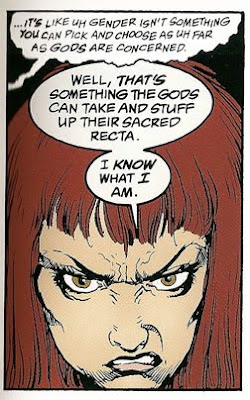
Half of Forward-in-Faith clergy will have retired within ten years.
Category Archives: ang communion
Where next for the Anglican Communion?
My latest Learning Supper talk is now posted on my other blog.
Our post-Church of England future
I’m doing a new sequence of Learning Supper talks from this Sunday night looking at women bishops/gay bishops/ the future of the Anglican Communion. They will be drawing on some talks I have done before, although updated in the light of all that’s happened in the Anglican Communion since then. Here, however, is a talk I did in 2007 covering some of this material.
Our post-Church of England future
Actually….. I think my views have changed a little bit. I’ll post the new talks though!
Some links
John Hobbins starting to look at human sexuality and the image of God, which is relevant to the marriage question (I’ll be returning to that soon).
Bishop Alan on the media; loved this “one message to angry vicars who feel misrepresented becomes “Forget Fleet Street. It simply doesn’t matter any more.” The Trafigura fuss brings home part of that point.
Joe the Evangelist on Mission and Worship (I disagree with Joe, but I’ll write separately about that).
Dave Keen links to this interesting polemic against celebrity culture. I think the rant is against a symptom rather than the cause though (the cause being, IMHO, the collapse of virtue diagnosed by MacIntyre).
BNP supporters are planning a bombing campaign, allegedly (h/t Chelmsford Anglican Mainstream).
Some gorgeous Rachmaninoff (I recommend checking that site regularly to get a fix of the heavenly).
Bishop Peter Selby on the Anglican shenanigans: “Protestations of our opposition to homophobia will count for little in an environment where our representative actions speak far louder than our words.” (h/t Wounded Bird)
Finally, for Al: one sense in which I am most certainly a liberal – and I should add, if home-ed becomes illegal, it’s one of the few things that would persuade dearly beloved to emigrate to the States (something I ponder regularly).
The elevation of conscience….
“the elevation of conscience over a catholic understanding of orders…”
One of many useful insights in Judith Maltby’s paper (re: the Act of Synod allowing women to be ordained).
Kicking women bishops into the long grass
Although it is not quite as baffling as the decision to award Obama the Nobel Peace Prize, the continual backtracking, equivocation and compromise-at-all-costs we can see going on with respect to consecrating women bishops is very nearly as daft. A decision has been made by Synod; now the gnomes are working out how to thwart it. Unity can also become an idol; surely a walking separately is an honourable outcome (and likely to lead to better relations in the long term)? Just how long does this process have to go on for? I fear that ABC is once again so concerned to include the extremes that the mainstream majority is prevented from pursuing its own vocation. Yet another thing that makes me suspect that most of the CofE will be aligned with TEC before too long.
Maggi has an interesting suggestion.
TBTE20090909

This is a fascinating article (polemic) about the Anglican shenanigans. (H/T MadPriest)
Caster Semenya and the difference between Wanda and Lord Fanny

One of the interesting things about the Caster Semenya kerfuffle is how it brings out the inadequacies of essentialist thinking. Sporting discrimination between male and female is predicated on their being an ineradicable difference between the two genders. Contestants have to be placed in one of two boxes ‘male’ and ‘female’. What happens if someone doesn’t qualify under either heading (I have no idea if this lady doesn’t; it just raises the issue)? It brings the classification system itself into question.
This thinking is a key part of what underlies the teaching in Leviticus 18 & 20 that it is an “abomination” for a man to lie with a man. The understanding is (and I’m drawing on Gareth Moore here) that there is a right way for sexual relations to be ordered, and it involves the two parties being members of particular and opposite categories (with male superior to female of course); the boundaries must not be transgressed. Human beings have to fit into the different categories (‘male and female he created them’) and, again, if there are people who don’t fit, it brings the classification system itself into question. Which is why there is the language about ‘the authority of Scripture’ – even if we leave aside questions of consistency, this issue does threaten that authority.
Two of my favourite graphic novel series deal with issues of transvestitism/transsexuality (forgive me if I don’t use the terminology properly), in differing ways. In the Sandman sequence there is a pre-op male to female transsexual called Wanda, who lives as a woman but who, at a key moment in the plot is rejected as a woman (by the Moon) because she has a Y chromosome: she is not acceptable as a female on essentialist grounds. In contrast to this, in The Invisibles, one of the key characters is Lord Fanny, who was born a boy but raised as a girl, and who, in a climactic engagement with the God Mictlantecuhtli is accepted as a witch because she made the God laugh.
What I want to ask is: where are Christians called to stand? Are we with the moon in saying that there is something essential that needs to be safeguarded and preserved – the boundaries are absolute? Or are we with Mictlantecuhtli and prepared to be flexible, allowing our categories to be bent?
For me the answer is pretty clear. We are called to recognise and relate to all people as individuals, not as members of one class or another. In particular, there is such an absence of genuine love in so many places in our world that it seems bizarre not to celebrate love when it can be found.
I see this as a development rooted in Christian understandings – not so much in Scripture as the unfolding of a tradition from that Scripture, specifically the teaching that in Christ there is no male or female etc – in other words, in Christ all the old essentials have been dissolved. Our identity now rests in our relationship with Him and all the other categories can get lost.
In other words:
UPDATE: an interesting article, via AKMA.
Our best days lie ahead
Via Grandmere Mimi:
“The battle isn’t about God. It’s about fear, control and property.
The anti-change minority wants to reclaim a world that no longer exists.
They want to seize property that doesn’t belong to them. Archbishop, you are being used.
If it’s any consolation, Archbishop, I don’t like some of the changes in my church, either. I think we have rewarded institutional tinkering and stopped dreaming. We depend on style and not substance. We worry about inherited property and not about the world outside our doors. We fuss about who is ordained when we should be nurturing healthy congregations.
Fear abounds. Fear of offending longtime members and deep-pocket givers. Fear of speaking freely and dreaming grandly. Fear of trying hard and maybe failing. Fear of preaching a Gospel more radical than anything we’ve said.
But many are determined to get beyond fear — by taking one brave step at a time, learning to be nimble and to listen, learning from our failures, taking risks.
The dilemma facing Episcopalians is that “soon, and very soon we are going to see the King.” Our buildings may crumble, our endowments may tumble, and all we have left is each other and our faith.
Will we have any song to sing when the great pipe organs are stilled? Will we have any prayer to say when comfortable pews are gone?
Will we sit in circles of love when nice parlors are sold? Will we love our neighbors when we cannot hire staff to do it for us?
I think we will have that faith. I think we already have it. It’s just hard to see when so much energy goes into institutionalism and fighting.
I think our best days lie ahead.”
Not just about the current shenanigans, and rather a timely read for me.
Against the Covenant

I’ve been more and more troubled the longer I reflect on Rowan’s recent letter (and it seems I’m not the only one). I thought Tim made a very good point, and there are many other useful discussions.
The thing is, my every instinct wants to continue to be loyal to Rowan. I’ve tried to defend him in previous years, even when his actions (eg over the Jeffrey John affair) have seemed questionable. Now, though, I don’t think I can do it any more.
What I most struggle with in Rowan’s letter is this paragraph (7): “In the light of the way in which the Church has consistently read the Bible for the last two thousand years, it is clear that a positive answer to this question would have to be based on the most painstaking biblical exegesis and on a wide acceptance of the results within the Communion, with due account taken of the teachings of ecumenical partners also. A major change naturally needs a strong level of consensus and solid theological grounding.”
This seems not just misleading (the exegesis has been done) but hypocritical. For example, Rowan’s own domestic circumstances are not such as to receive approval according to ‘the teachings of ecumenical partners’, nor are his orders, which are ‘null and void’. If this understanding were to be adopted as normative for our church – and let us be absolutely clear that this understanding is not and has not been normative before (from the establishment of the church itself all the way through to the ordination of women) – then we are finally abandoning historic Anglican ecclesiology. There would, in fact, be no point in continuing as a separate church; we would have given away all power of autonomy and self-direction under God.
I feel that Rowan has become captured by the powers, whether those powers are seen as ‘establishment’ or ‘ecumenical concerns’ or something else. He has raised up the principle of catholicity and unity too far above those of truth and justice and the reality of Anglican church autonomy and existing structures. The principles of catholicity and unity are good principles, but like all good principles they can be taken too far – and I believe they have now become idols: they will give what is requested, but take human life in exchange. For all sorts of reasons I believe the centralisation of power to be wrong and remarkably ill-timed in a context where a post-Peak Oil world will soon be shrinking again.
What is most saddening is how the Jeffrey John affair seems in retrospect. I could just about get my head around it if it was about timing, ie that the kairos was wrong. Yet Rowan’s position now is that – in contrast to his previous teaching and practice – there will never be a kairos moment for such as Jeffrey John. I no longer have any sense of where Rowan’s integrity lies in all this. I’m sure it’s there somewhere; but then, Caiaphas was probably a good and prayerful man too.

